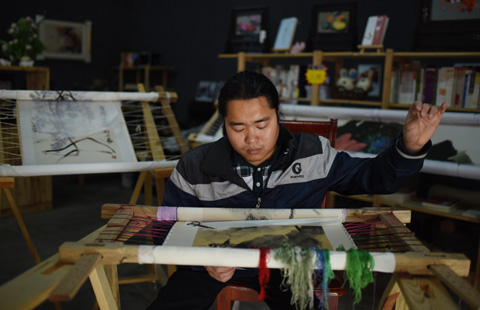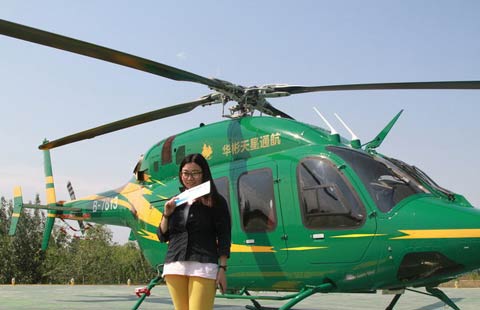China not seeking to move outdated capacity abroad: NDRC
(Xinhua) Updated: 2015-05-20 15:37BEIJING - China's top economic planner reiterated that the country is not seeking to export its outdated capacity to other countries on Wednesday.
"The core of the international industrial cooperation is to encourage our advanced capacity to go global," said Gu Dawei, an official from the National Development and Reform Commission (NDRC), at a press briefing.
The Chinese government has been pushing for industrial cooperation with other countries as a source of new growth by further opening-up at a time when the economy is slowing. But the drive has raised some outside concerns over whether the nation is trying to move its pollution and outdated capacity abroad.
On Saturday, the State Council announced a guideline for accelerating industrial cooperation with other countries. It listed 12 prioritized sectors in which it wishes to enhance such cooperation, including steel, construction materials, railways, machinery, aviation and aerospace, and maritime engineering among others.
Gu said the listed sectors have amassed huge competitive strengths over the years, making them among the highest of global standards.
By moving the production lines abroad, China can boost its exports while helping recipient countries create jobs, improve industrial capability, and stimulate growth, he said.
The drive also involves Chinese companies in the global market and brings tougher competition that will force them to improve, Gu said.
"The cooperation is mutually beneficial," he said.
Earlier data showed outbound direct investment for equipment manufacturing hit $960 million during the first quarter of 2015.
- 'Capacity exports' help China and the world
- China eyes 'capacity exports' to sustain growth
- China pledges reciprocity, market operation in capacity export
- Belt and Road nations account for 26% of China's total trade
- China Premier says 7% growth hard to achieve, spurns devaluation
- China's growth target in 2015 feasible
- China vows hefty investment to improve Internet services
- China's Hanergy shares plunge nearly 50%, trade halted
- AIIB founding members to vie for power at Singapore meeting
- Hit on the rail: Fast speed and steady hands
- Brazilian mining giant Vale signs MoUs with Chinese firms
- Easier bond rules may boost investment
- Foreign tech firms launch R&D centers in wider range of cities
- UN report predicts modest global economic growth

















